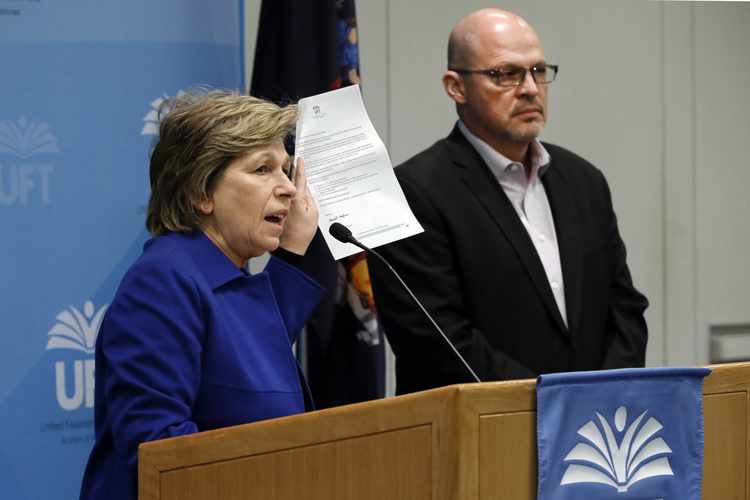
Charter Schools Don’t Need Blood Money
RealClear Education | July 15, 2020
By Jeanne Allen, Founder and CEO of CER
Political blood money transactions and agreements abound in Washington circles, and in education it’s no different, we’re often bluntly reminded.
This time the sour reminder hit close to home, however, when the National Alliance for Public Charter Schools(NAPCS) announced that charters’ arch enemy, teachers union leader Randi Weingarten, would be joining them for a folksy little fireside chat in their annual conference (virtual this year) in an effort to find ‘common ground.’
The Alliance reacted to dozens of outraged charter advocates by explaining in many individual conversations that the move was intended to ensure that charter schools receive their fair share of federal funding during the upcoming congressional appropriations and into the future (when presumably – they believe – Biden will be President, Congress will tip entirely and as a result, the unions will once again be the most powerful lobbyists in the nation). Currying favor now might mitigate huge losses in the future, which is kind of like admitting that the unions are the enemy, but for the sake of the kids we must indeed sell our souls.
 (AP Photo/Richard Drew)
(AP Photo/Richard Drew)
Only here’s the problem; charter schools were never intended to be fueled by federal dollars. On the contrary; for decades, that trend is responsible for the regulatory stranglehold under which the traditional public school system has so miserably failed many millions of children. The flexibility and performance-based accountability charters are afforded is why so many of them succeed in areas where other models and institutions fail.
As public schools, charter schools are entitled to equitable distributions of federal funds that flow to states and districts. While most of the time they don’t receive their fair share, particularly in states where weak charter laws permit districts to restrict their allocations, succeeding and achieving equity depends more on their own individual strength and power to persuade state lawmakers to treat them equitably – not on capitulating to union bosses.
We glimpsed that strength just this past weekend when charter school leaders of color, representing collectively tens of thousands of students, threatened to take action if the Alliance didn’t rescind their invitation to Weingarten.
NAPCS CEO Nina Rees sent a muddled message Monday morning explaining their decision to do so was about “complexities” in the movement, and that they would continue to seek collaboration.
Collaboration? Was the AFT- affiliated United Teachers of Los Angeles’ threat to not go back to work unless charters were shut down in the interest of collaboration? What about the AFT’s personal attacks on the leader of the Chicago International Charter School; were the vicious lies about her and the schools she led in order to unionize them spread in hopes of collaboration?
The unions’ endless campaign to thwart charter schools will not disappear or be quelled because a union leader got to speak at a pro-charter school convention. On the contrary, hosting a Weingarten “chat” that allows her to offer her traditionally disingenuous rhetoric unchallenged gives her a level of credibility that she doesn’t deserve, while sending a confusing signal to advocates.
Get over it, National Alliance. The modern teachers union agenda and the charter school idea cannot co-exist when the former depends on coercion and the latter on freedom. Until labor contracts are no longer forced on unsuspecting teachers and written to control every manner of operation, from pay, to time on task, to even who speaks to whom when, there is no productive role for an AFT president to play in charter schools.
Follow Jeanne on Twitter or LinkedIn or some of her other work here.
Founded in 1993, the Center for Education Reform aims to expand educational opportunities that lead to improved economic outcomes for all Americans — particularly our youth — ensuring that conditions are ripe for innovation, freedom and flexibility throughout U.S. education.

